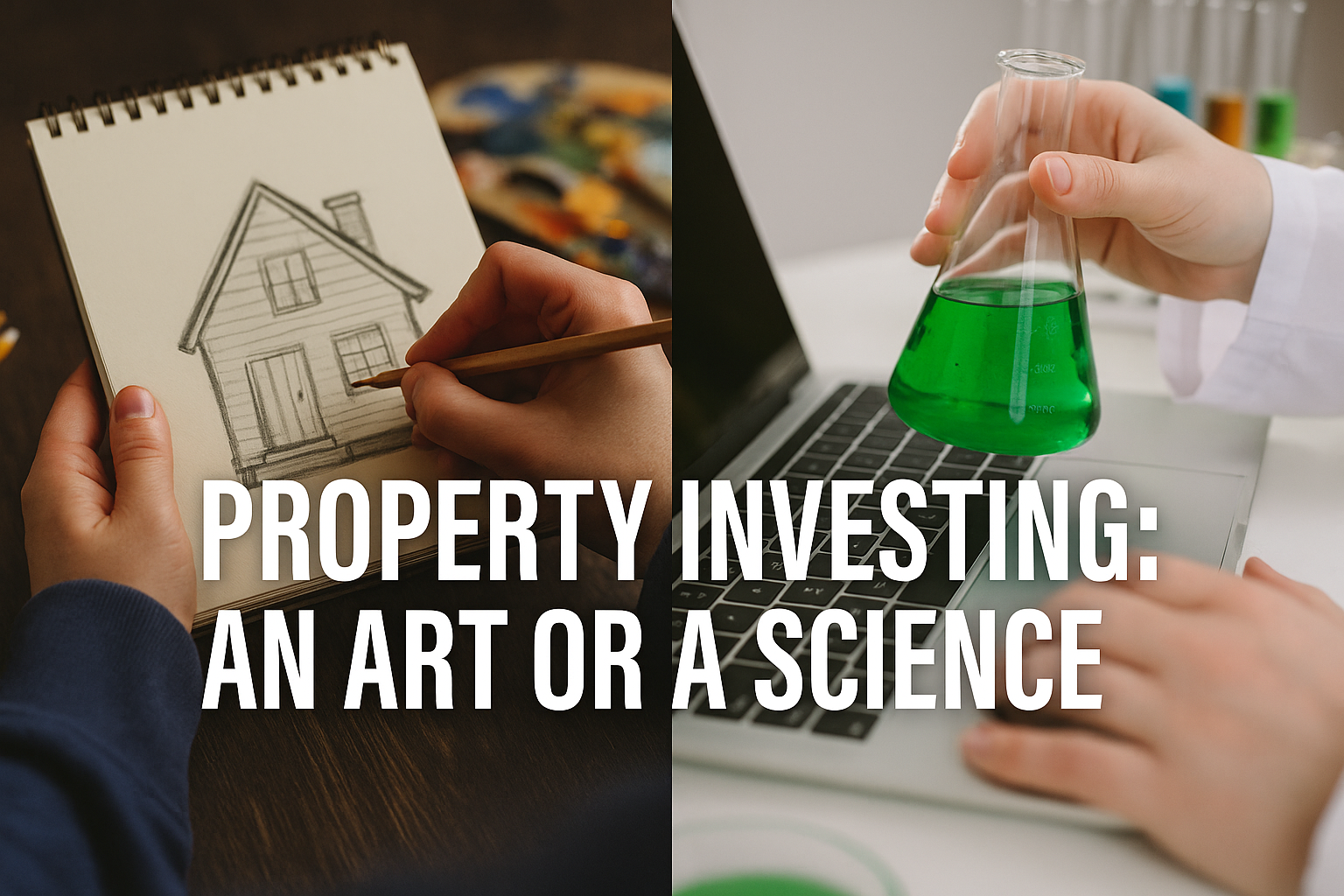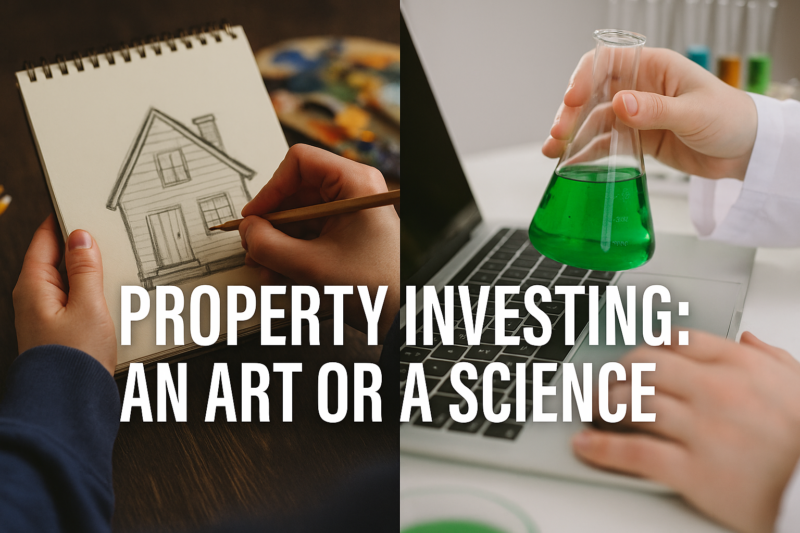Investing in property isn’t as straightforward as you might think, and if you don’t do it right, it could end up costing you a fortune.
I always say: “Don’t let your emotions get in the way of your property investment decisions.”
In fact, of all the common mistakes property investors make, this is where most of them go wrong.
Instead of undertaking appropriate due diligence by looking closely at property data, many investors are making emotional purchases and it's causing poor decision making.
They’re buying where they live, where they want to holiday or retire, or even buying the type of property they’d like to live in.
That just doesn’t make good investment sense, does it?.
So what does?
Over the years I’ve found that investors tend to fall into one of three main categories, which led me to question if one style of investing is more successful than others.
What type of investor are you?
So, let's look at the three types of property investors.
1. The passive investor
A passive investor tends to spend little time doing any due diligence and is keen to buy one of the first properties they come across.

They aren’t really interested in understanding all of the ins and outs that go along with creating a property portfolio such as finance, tax laws, compounding, and so forth.
Instead, passive investor tends to let their emotions get involved in their investment decisions, which we know can lead to disastrous results.
2. The active investor
An active investor puts in some degree of work in order to find a good investment prospect, including conducting some due diligence in the hope they can increase the likelihood of making a good and viable investment purchase.
They generally look to gain a basic understanding of the principles involved in property, finance and taxation and would look to seek professional advice for help with structuring a portfolio.
3. The analytical investor
An analytical investor is the far extreme of a passive investor.
Instead of undertaking little research and due diligence, this type of investor tends to go overboard and spend months, or even years, examining data, seeking advice, and reading material in order to look for the ‘ultimate’ investment property.
While it may seem that an analytical investor is more likely to make successful investment decisions, it’s actually not the case.
Below you’ll find out why, but first let's look at...
The Rise of AI: A New “Secret Weapon” or Just More Noise?
In recent years, artificial intelligence has been touted as the next big thing in property investment.
Many buyer's agents now claim they use “AI-powered research tools” to identify hidden suburbs and predict growth hotspots.
It sounds impressive, but there’s a problem.
Most of these tools are pulling from the same public datasets—CoreLogic, ABS census data, property listings, and online sentiment.
The algorithms crunch all this information and spit out suburb rankings or heatmaps.
But here’s the kicker...
[Tips] When everyone uses the same data, the insights are rarely exclusive. [/Tips]
Even worse, this can fuel herd behaviour.
We’ve already seen this in small regional towns - AI tools flagged these areas during the pandemic as “high growth” due to rising search volumes and lifestyle migration.
Buyers agents piled in, funnelling clients into the same markets and driving prices up in a short period.
Today, many of these towns are seeing price corrections as the hype fades and the same buyer's agents are chasing the next hot spot - reminding us that algorithms can’t see beyond the averages.
Why AI Can’t Replace Human Insight
Don’t get me wrong—AI has its place.
It can process huge volumes of data and spot broad trends faster than any human. But property investment isn’t just about data. It’s about nuance, judgement, and context—things AI can’t provide.
Of course, data is crucial but I’ve always said smart investing requires both science and art.
Relying purely on data is dangerous:
- Median prices can mislead. A few outlier sales or new developments often skew them.
- AI lacks nuance. It doesn’t know if a major employer is about to leave town or if a rezoning proposal will change the game.
- AI can’t see human behaviour. It doesn’t sense desperation in a seller’s voice or the subtle shift in auction dynamics.
- Algorithms don’t understand you. They can’t tailor advice to your risk profile, goals, or family’s future.
At best, AI offers averages. But building wealth isn’t about averages—it’s about making strategic, individual decisions.
At best, AI should be a tool in the hands of a skilled property strategist—not a replacement for one.
The science of data analysis is important, but it’s only half the equation. The art of property investing lies in interpreting that data, applying local market knowledge, and crafting a strategy tailored to your individual circumstances.
The problem with property data
As I said, there’s no doubt that it’s important to understand the property fundamentals and research appropriate and reliable property data, and the more extensive the data research is and the longer it goes back, the more accurate it is in forecasting future trends.
But the problem is that data is often wrong.
Unfortunately, the most commonly reported data - median price data - is actually very unreliable.
Why?
There are three reasons:
- Because median prices fluctuate depending on the way the property is sold. In many suburban areas, where the property sold a number of years ago and vacant land has now been replaced by new homes, this data is irrelevant.
- Similarly, new apartment or townhouse developments can skew median house prices of other local properties.
- Gentrification and renovation change the nature or quality of properties which again, results in the median house price for the area is incorrect.
Using median price data is risky for investment purchases and can cause costly investment mistakes.
Just because median prices go up in the area doesn’t mean that the value of any local property also increases.
So is property investing an ‘art’ or a ‘science’?
Both.
It’s true, that successful property investors need research and data to aid an investment decision, but it’s not enough on its own.
Investors also need to complement any applicable data with local area knowledge and expertise, plus experience and perspective in order to make the best-informed choices.
Someone looking at data can make it say almost anything they want; the trick is knowing how to take that information and use it in conjunction with some practical experience in order to accurately make an investment decision.
In other words, data and research are critical steps in getting ready to invest, but it is only one of the many important steps.
There is no substitute for practical experience.
This is why Metropole’s buyer's agents are so valuable - because they bring the “art” part of the investment equation to property investors who have done internet and data research to cover the “science” part of the investment.
They are ex-selling agents with on-the-ground experience and who understand the local markets and their drivers.
They understand why one side of a road or area of a suburb is more valuable than another, or where and why the strongest demand sits in each area.
This is a perspective money can’t buy and data can’t show you
Not only this but at Metropole, our property strategists and buyers’ agents each have their own area of expertise with a very different skillset.
Our property strategists are experienced in data, research, analysis, finance, and investment strategy.
Then, once they’ve helped build a detailed Strategic Property Plan, they involve the expertise of one of our buyers’ agents.

Our buyers’ agents are unique in that they have the type of on-the-ground knowledge money can’t buy.
We see some buyers’ agents travel, inspect, make an offer and buy property all over Australia.
While they may have the “science” part of the equation worked out, they really don’t have the “art” section – the perspective to interpret the data as it relates to a particular location.
As the saying goes, “it takes two to Tango”. One without the other is worthless.
What’s the key lesson here?
Property investment is an expensive game and you can’t afford to get it wrong.
Engaging with experts with many years of experience can help you avoid making the costly mistakes made by so many naïve investors.
Remember, property investment data is crucial when making an investment decision, but it’s only half of the work.
Failing to combine both the “science” and “art” of property investment could end up costing you a fortune.

















